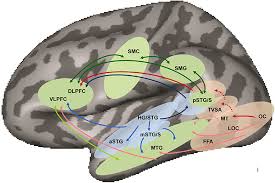Contents
Introduction
Jennifer Eberhardt is a prominent American social psychologist known for her pioneering research on racial bias and its impact on various aspects of society, particularly within the criminal justice system. Her work explores how racial stereotypes influence visual perception, decision-making, and behavior, often in ways that people are not consciously aware of. Eberhardt’s groundbreaking research has been widely recognized for its relevance to understanding how bias, both implicit and explicit, affects societal structures, especially in law enforcement and criminal justice. A professor of psychology at Stanford University, she has received numerous accolades for her contributions to the field, including a MacArthur “Genius” Grant.

This article explain into Eberhardt’s life, major theories, and the profound influence her research has had on contemporary psychology, public policy, and the fight against systemic racial inequality.
Early Life and Education
Jennifer Eberhardt was born in 1965 in Cleveland, Ohio. Growing up in a predominantly African-American neighborhood, she became acutely aware of the racial dynamics and inequalities that shaped the lives of those around her. Her early exposure to the impact of race on opportunities and perceptions ignited a passion for exploring these issues further. This personal experience laid the groundwork for her future research, which focused on uncovering the profound ways racial bias influences individuals and society, particularly in the realms of law enforcement and criminal justice.
Image Source: deathpenaltyinfo.org

Educational Journey
| Aspect | Details |
|---|---|
| Undergraduate Education | Eberhardt earned her undergraduate degree in Psychology from the University of Cincinnati, where she first developed an interest in racial bias and social psychology. |
| Graduate Studies | She pursued her Ph.D. in Psychology at Harvard University under the mentorship of leading psychologists, focusing on racial perception, implicit bias, and how these affect decision-making and behavior. |
| Postdoctoral Work | Eberhardt completed postdoctoral research at Yale University, where she expanded her studies on racial bias and began collaborating with social and criminal justice experts to apply her findings in real-world contexts. |
| Academic Positions | Eberhardt is currently a professor of psychology at Stanford University, where her research on racial bias and its impact on society, particularly in policing, has gained widespread attention and influenced both academic and public discourse. |
Influences and Early Career
| Aspect | Details |
|---|---|
| Social Psychology | Eberhardt was influenced by the early work of Gordon Allport, whose research on prejudice and discrimination laid the groundwork for studying how stereotypes and biases form. |
| Implicit Bias Research | Eberhardt’s work builds on the foundational research of Mahzarin Banaji and Anthony Greenwald, who developed the Implicit Association Test (IAT) to measure unconscious bias. |
| Cognitive Neuroscience | Drawing from cognitive neuroscience, Eberhardt has employed neuroimaging techniques to explore how racial stereotypes are processed in the brain, particularly in automatic perception and decision-making. |
| Criminal Justice Reform | Eberhardt’s collaborations with law enforcement agencies were influenced by early work on racial profiling and the societal impact of implicit biases in policing, including research by Phillip Goff and the Center for Policing Equity. |
| Perceptual Bias | Eberhardt’s work extends research on perceptual bias, examining how race affects the way people perceive and interpret physical traits, such as facial features and threat perception. |
Major Theories and Work

Implicit Racial Bias and Policing
One of Eberhardt’s most significant contributions is her research on implicit racial bias and how it affects decision-making in the criminal justice system, particularly in policing.
- Police and Perception of Race: Eberhardt’s research has shown that police officers are more likely to associate Black individuals with criminality, even when presented with neutral or ambiguous stimuli. This bias often manifests in quicker, more aggressive responses to Black suspects compared to White suspects.
- Face Perception and Race: Eberhardt’s studies reveal that people, including law enforcement officers, are more likely to perceive Black faces as more threatening or dangerous than White faces.
Image Source: britecenter.org
Eberhardt’s research has also focused on the visual processing of race and how racial categories influence perception on a subconscious level.
- Race and Visual Attention: Eberhardt has used experimental methods to show that people tend to focus more on Black faces when primed with images of crime or danger. This effect occurs even when individuals are not consciously aware of their bias, highlighting how deeply ingrained these stereotypes are in human perception.
- Neural Processing of Race: Eberhardt’s studies using neuroimaging techniques have shown that racial biases are activated in the brain within milliseconds of seeing a Black face, illustrating how race affects automatic perceptual processes.
Image Source: frontiersin.org

Perception and Visual Processing of Race
Famous Books and Publications

The Oblivion Seekers

Writings from the Sand

In the Shadow of Islam

Nomad: The Diaries of Isabelle
Influence on Contemporary and Future Psychological Research
- Implicit Bias Research: Eberhardt’s groundbreaking work on implicit racial bias has spurred significant research into how unconscious biases affect decision-making and behavior. Her research has inspired further exploration into the role of implicit bias in various sectors, including education, healthcare, and employment, where racial disparities persist.
- Criminal Justice and Policing: Eberhardt’s research has had a direct influence on reform efforts within the criminal justice system. Her findings have prompted law enforcement agencies to adopt implicit bias training programs aimed at reducing racial disparities in policing and have sparked further studies on racial profiling and police practices.
- Neuroscience of Stereotyping: Eberhardt’s integration of neuroscience with social psychology has expanded the field of cognitive neuroscience. Researchers continue to investigate how stereotypes are processed in the brain and how early interventions can mitigate the activation of these biases.
- Policy and Legal Reform: Eberhardt’s research has been instrumental in shaping public policy and legal discourse on racial bias. Her work is frequently cited in court cases related to racial discrimination and sentencing disparities, and it continues to inform efforts to make the justice system more equitable.
- Social Psychology of Perception: Eberhardt’s work has broadened the scope of social psychology, particularly in understanding how visual perception and racial categories are intertwined. Her research has led to a growing body of work on how race influences visual attention, emotion recognition, and threat detection.
Psychologists and Educators Influenced by Jennifer Eberhardt

- Phillip Atiba Goff: A leading researcher in policing and racial bias, Goff’s work builds on Eberhardt’s research by focusing on police behavior and racial disparities in law enforcement. Together, they have collaborated on reform initiatives to address racial bias in policing.
- Mahzarin Banaji: Eberhardt’s research is closely aligned with Banaji’s work on implicit bias. Banaji’s development of the Implicit Association Test (IAT) complements Eberhardt’s studies on how unconscious racial biases influence decision-making in everyday situations.
- Claude Steele: Steele’s work on stereotype threat intersects with Eberhardt’s research on racial bias. Both psychologists have examined how racial stereotypes affect the behavior and performance of minority individuals in social and educational contexts.
- David Amodio: A social neuroscientist, Amodio’s research on the neural basis of prejudice has been heavily influenced by Eberhardt’s integration of social psychology and neuroscience. Amodio’s work extends Eberhardt’s findings on how racial biases are processed in the brain.
- Patricia Devine: A leader in the field of prejudice reduction, Devine has built on Eberhardt’s work by developing interventions to mitigate implicit bias. Her research focuses on long-term strategies to reduce the impact of racial biases in various social contexts.
Impact on Psychology
- Influence on Modern Thought: Jennifer Eberhardt’s exploration of racial bias has fundamentally transformed contemporary psychology’s understanding of how implicit stereotypes influence perception, decision-making, and behavior. Her work emphasizes that racial biases are not just conscious beliefs, but also deeply ingrained cognitive processes that affect social interactions and institutional systems. Eberhardt’s research has provided a comprehensive framework for addressing racial inequality, impacting fields as diverse as criminal justice, neuroscience, and public policy.
- Legacy and Recognition: Eberhardt’s contributions have earned her numerous accolades, including the prestigious MacArthur “Genius” Grant, recognizing her pioneering research on racial bias and its real-world applications. She has also received the SAGE-CASBS Award for her work bridging social science and public policy, as well as several APA awards for her contributions to psychology. Eberhardt’s research continues to influence legal reform, educational initiatives, and efforts to reduce bias in law enforcement, ensuring her lasting impact on both psychology and society.
Conclusion
Jennifer Eberhardt’s work on racial bias has had a profound and lasting impact on psychology, criminal justice, and public policy. Her groundbreaking research on how implicit biases shape perception and behavior has not only advanced academic understanding but has also been applied in practical efforts to combat racial inequality. Eberhardt’s enduring legacy as a leader in social psychology and racial justice ensures that her contributions will continue to influence future generations of psychologists, educators, and policymakers.
Bibliography
- Eberhardt, J. L. (2019). Biased: Uncovering the Hidden Prejudice That Shapes What We See, Think, and Do. Viking Press.
- Eberhardt, J. L., & Goff, P. A. (2005). Seeing Black: Race, Crime, and Visual Processing. Journal of Personality and Social Psychology.
- Eberhardt, J. L., Davies, P. G., Purdie-Vaughns, V. J., & Johnson, S. L. (2006). Looking Deathworthy: Perceived Stereotypicality of Black Defendants Predicts Capital Sentencing Outcomes. Psychological Science.
- Eberhardt, J. L., & Purdie, V. (2004). The Impact of Implicit Racial Bias on Decision Making in the Criminal Justice System. Law and Human Behavior.
- Eberhardt, J. L., & Banks, R. (2010). Race, Crime, and Anticipatory Bias: Exposure to Stereotypes Causes Discrimination in Policing. Journal of Experimental Social Psychology.
- Goff, P. A., Eberhardt, J. L., & Williams, M. J. (2008). Not Yet Human: Implicit Knowledge, Historical Dehumanization, and Contemporary Consequences. Journal of Personality and Social Psychology.
- Eberhardt, J. L., & Amodio, D. M. (2007). Neural Mechanisms Underlying Implicit Bias and Stereotyping. Nature Neuroscience.
- Eberhardt, J. L., & Steele, C. M. (2003). Stereotype Activation and the Visual Perception of Racial Outgroups. Psychological Science.
- Eberhardt, J. L., & Devine, P. G. (2011). Implicit Bias and Social Judgment: The Role of Stereotypes in Decision Making. Annual Review of Psychology.
- Eberhardt, J. L. (2015). The Social Science of Racial Perception and Bias in the Criminal Justice System. Law and Society Review.






